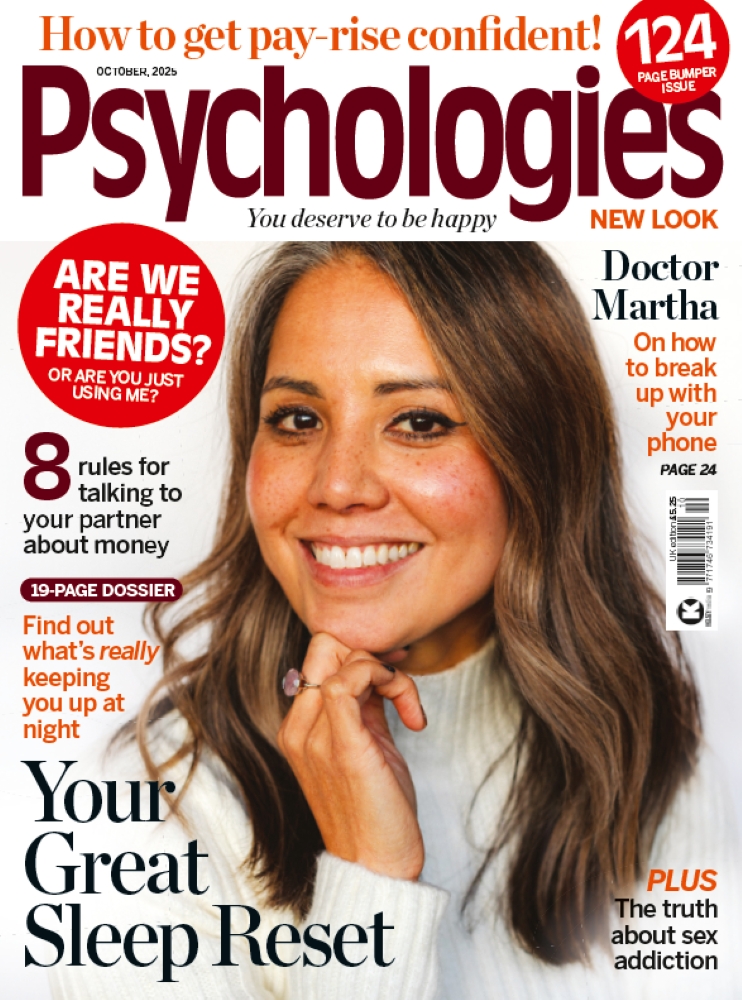Does your child spend too much time online?
Are you worried about the amount of time your child spends online? Do you nag them about it, but get nowhere? You’re not alone. Psychologies editor Suzy Greaves discovers a new coaching book for kids that just might help

Having spent the last few months constantly telling my 12-year-old son Charlie to get off his mobile phone/tablet/laptop, I am exhausted. We're both nagged out. Even with basic rules in place – no tech at the table or in bed – I am becoming increasingly worried that he spends too much of his time with his face and fingers glued to a screen.
I was delighted therefore when Virtually Me: Your Manifesto for Online Life by EB Clarke (Identity Withheld Books, £9.99) arrived on my desk. The first internet self-help book for children and young people is by mum-of-two Emma Clarke, who hit on the idea when her 13-year-old daughter asked if she could have a Twitter account.
Virtually Me is an activity journal that coaches its young readers to think about some of the issues that can occur online and to allow them, through their own mindfulness, to figure out a personal policy on what's OK to do online… and what's not.
Its message: ‘You are in charge of what you do. You are in charge of how you feel. You are in charge of how you communicate. You are in charge of your own happiness.’
It encourages young readers to answer questions such as: Do you do and say stuff online that you would never ever do when you’re actually face-to-face with people? What do you really love doing that doesn’t involve the internet or any of your devices? Look through your browsing and download history. Is there anything in there you wouldn’t want your parents to see? Why? What do you reckon they’d say?
What I love about this book that it encourages kids to think for themselves, and asks intelligent coaching questions, which perhaps will make them dig deeper and ponder the role technology plays in their lives. It certainly made me think twice. One of the first questions the book asks is: Think of the first three things you do when you wake up in the morning. Ask yourself: is one of those things – check my phone? When you check your phone, what are you hoping to find?
"It's a book that talks to you but doesn't tell you what to do," agrees author Emma Clarke, who is also an award-winning voice actor, best known for the 'Mind The Gap’ announcements on London's tube trains.
"It uses a mixture of activities, scenarios and moral dilemmas to encourage readers to think about their internet use, such as what should be made public and what should be kept private, how to keep yourself safe online, how to handle awkward online situations and how to use the internet in creative and inspiring ways.
"The readers are in charge and at the end, are invited to write their own personal manifesto for managing their online life."
I asked my 12-year-old son and two of his friends to read the book, complete the exercises and write me a review. Did it work? This is what they said:
“This book is really good when it comes to changing your mind about electronics. It has been a very good help to make me understand all the possible consequences of using my phone. It's funny too, and an enjoyable read. The bit I liked best was the question: what you would do if your friend posted something inappropriate on social media? I reacted straight away and started thinking really deeply about it. To summarise, this is a brilliant book!” Charlie, 12
“This book has changed my view on tech. I love this book; it is filled with humour and has made me a lot less addicted to my phone. Now I want to play not just on my phone but outdoors as well. It's also one of the funniest books I've read in ages. I’ve never read any of EB Clarke's books, but I can tell that she is a good writer. I would give it five stars!” Jamie, 12
“I found leaving my phone alone when a text came through and waiting for three breaths really hard. I wondered if I might be addicted to technology. I thought the exercise when you had to notice your thoughts and emotions when looking at social media was really interesting. I felt sad, happy… all sorts of things, just by looking at my phone! This book made me think about how and when I use my phone. I really liked writing my manifesto – answering questions like: what’s most important to me? How do I want to be remembered? What do I want to achieve? It’s a really useful exercise. This is an interesting book.” Ethan, 12
Virtually Me: Your Manifesto For Online Life is published by Identity Withheld. You can find out more at www.identitywithheld.com The book is also available in all online bookshops.
Photograph: iStock









